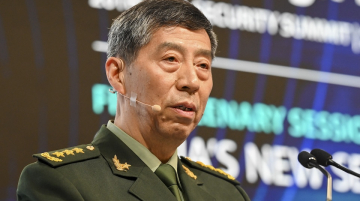
By Hugo Jones
Leaders, diplomats, and political parties from countries across Africa and the Global South have criticized Nancy Pelosi’s recent trip to Taiwan and reaffirmed their commitment to (China’s interpretation of) the One-China principle. As Cobus van Staden noted last week, China has sought to encourage and amplify these statements of support across state media and diplomatic Twitter accounts.
The list of countries that have shown support for China continues to grow. These statements are then digested and repackaged to provide soundbites that “[insert country] firmly supports the One-China principle” [坚定支持一个中国]. This “One China” media circus shows how China wields discourse power and seeks to shape global narratives.
Questions are now being asked, such as: What stance would countries in the Global South take if China mounted an invasion of Taiwan? Or if Sino-US tensions, prompted by a Taiwan Strait crisis, escalated to the point of global conflict? But we should preclude these hypothetical questions with what most voices from Global South countries are actually saying. Already reeling from the far-reaching consequences of the war in Ukraine, there is little appetite for further geopolitical disruptions to supply chains, energy, food security, and debt relief. Support for the One-China principle is largely support for the status quo in cross-strait relations.
Take for example the comments made by Egypt’s President Abdel Fattah El-Sisi on Saturday: “We have a consistent policy towards the situation in Taiwan, and Egypt always with China being one country because this is in the interest of stability and security in the world. In fact, we do not need more crises than that affect us all.”
As Xi Jinping rolls out a raft of new concepts for the international community’s consumption, such as the “Global Security Initiative” and “Global Development Initiative”, the One-China Principle is a lesson in both the strengths and the limits of China’s discourse power.
We should avoid an interpretation that statements condemning the Pelosi visit are an indication of countries “lining up” behind China in a looming confrontation between the world’s two largest economies. From the perspective of the government of a developing country, asserting a commitment to the One-China principle is a fairly low-stakes way of appeasing China and preventing escalation. The One-China principle is already both a condition and foundation of any bilateral relationship with China; abundant pledges of support for “One-China”, however well-publicized, do not equate to radical shifts in diplomatic positions or China’s global power.
But these statements of support do, as Lina Benabdallah tweeted, come at a bad time for America. Pelosi’s trip to Taiwan has whipped up vocal anti-US sentiment in some African countries in the same week that the US launched its new sub-Saharan Africa strategy.
For example, Eritrea’s Ministry of Foreign Affairs released a statement claiming “Washington has concocted the provocative visit of House Speaker Pelosi to Taiwan with all its perilous ramifications.” In this way, China has successfully leveraged the discourse power of the One-China principle to popularize the notion that the US does not respect other countries’ sovereignty (despite the fact that Nancy Pelosi is not part of the US executive).
Pelosi’s visit also highlights that if the G7 wishes to build coalitions with the Global South to counter China, the issue of Taiwan is not the place to start. This fact may make it difficult for the US to navigate some of its grand objectives in engaging with Africa, such as “transcending geographic seams” by linking African actors to Indo-Pacific security issues.
However, it’s notable that this example of China’s discourse power is in fact the mobilization of a concept that was established over five decades ago. In comparison, the recent discourse promoted under Xi Jinping such as the “China Dream”, “New Era” and “Common Destiny for Mankind” have had limited uptake in the Global South. This reiterates that it takes a lot of time (and in the case of the One-China principle, a lot of money) for China to establish a distinctive and powerful discourse in the international sphere.
The extent to which China was able to mobilize the party-state apparatus, including embassies, ministries, and PLA Theatre Commands, to generate vocal opposition to Pelosi’s sightseeing tour is impressive, especially in the context of China’s hierarchical foreign policy apparatus. But, ultimately, most of these countries had long before committed to the One-China principle in order to trade with China and have merely reiterated this position. As Xi Jinping rolls out a raft of new concepts for the international community’s consumption, such as the “Global Security Initiative” and “Global Development Initiative”, the One-China Principle is a lesson in both the strengths and the limits of China’s discourse power.
Hugo Jones is a Programme and Research Associate at LSE IDEAS, the London School of Economics’ foreign policy think tank.










